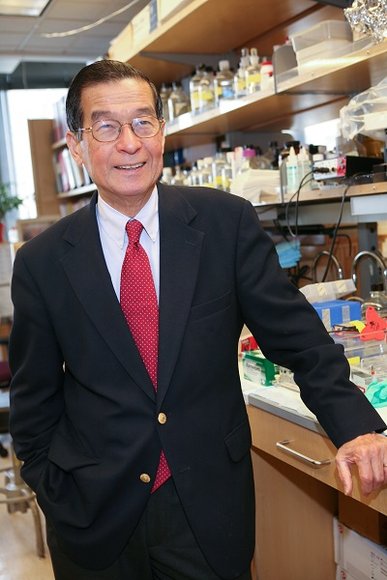Lasker Laureate Yuet Wai Kan pioneered the design and implementation of prenatal DNA-based screening tests for blood disorders such as sickle cell anemia and thalassemia, which are two of the most common genetic diseases in the world. These conditions are caused by defects in genes that help make hemoglobin. Kan also helped lay the groundwork for subsequent progress in the identification of additional genetic diseases and in prenatal genetic screening.

Image Credit: Elisabeth Fall/UCSF
In his most recent work, Kan has been investigating non-invasive fetal diagnostic techniques such as the isolation of fetal cells from the mother’s blood for testing for genetic disorders, as well as designing methods for in utero gene therapy. His research also explores the use of stem cells to treat sickle cell disease and thalassemias. Therapies for these disorders are in clinical trials at several centers, employing virus-based gene transfer tools (lentiviral vectors) to deliver a correct version of the faulty gene involved in hemoglobin production to stem cells that would become red blood cells. According to Kan, “preliminary results appear to be quite promising.”
“A major barrier to new treatments for these inherited blood diseases is the inability to differentiate iPS [induced pluripotent stem] cells into transplantable hematopoietic stem cells. Therefore, these approaches must involve harvesting hematopoietic stem and progenitor cells (HSPCs) from the patients, correcting the gene, and transplanting the cells back to the patients. These procedures are expensive and labor intensive. If there is a breakthrough in differentiating iPS cells into transplantable and safe HSPCs, it will make treatment much easier.”
Kan was born in Hong Kong and graduated from the University of Hong Kong Medical School in 1958. He received the 1991 Albert Lasker Clinical Medical Research Award for his application of recombinant DNA technology for prenatal and predictive diagnosis.
